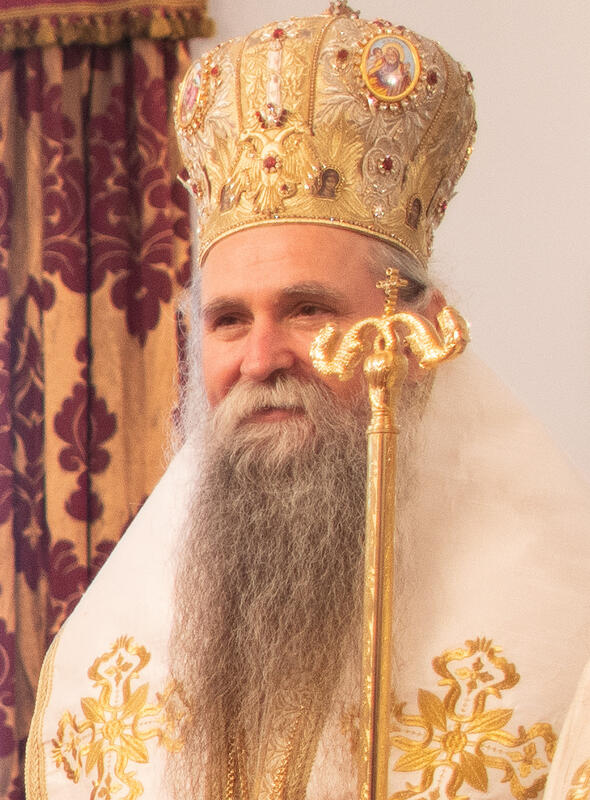
Joanikije
Joanikije is the metropolitan of Montenegro and the Littoral within the Serbian Orthodox Church. He has been a prominent religious leader, known for his efforts to maintain the unity and integrity of the church while addressing contemporary social issues. Recently, he and other church leaders publicly denounced disparaging remarks made about students, emphasizing the importance of respecting their dignity and contributions to society.
Global Media Ratings
Countries Mentioned
| Country | Mentions | Sentiment | Dominance | + Persistence | x Population | = Reach | x GDP (millions) | = Power |
|---|---|---|---|---|---|---|---|---|
| Montenegro | 4 | 5.00 | 0.39% | +40% | 628,066 | 3,388 | $5,500 | 30$ |
| Totals | 4 | 628,066 | 3,388 | $5,500 | 30$ |
Interactive World Map
Each country's color is based on "Mentions" from the table above.
Recent Mentions
 Montenegro:
Mitropolit crnogorsko-primorski Joanikije refused to answer when the construction of the church is planned.
5
Montenegro:
Mitropolit crnogorsko-primorski Joanikije refused to answer when the construction of the church is planned.
5
 Montenegro:
Joanikije is mentioned in relation to the Serbian Orthodox Church and political interests.
5
Montenegro:
Joanikije is mentioned in relation to the Serbian Orthodox Church and political interests.
5
 Montenegro:
Joanikije is the Metropolitan of Montenegro and the Littoral, mentioned in the context of political support and protests.
5
Montenegro:
Joanikije is the Metropolitan of Montenegro and the Littoral, mentioned in the context of political support and protests.
5
 Montenegro:
Joanikije is the Metropolitan of Montenegro and the Littoral who led the liturgy attended by Dušan Raičević.
5
Montenegro:
Joanikije is the Metropolitan of Montenegro and the Littoral who led the liturgy attended by Dušan Raičević.
5
 Montenegro:
Joanikije is the Metropolitan of the Serbian Orthodox Church who was involved in a controversial installation in Cetinje.
5
Montenegro:
Joanikije is the Metropolitan of the Serbian Orthodox Church who was involved in a controversial installation in Cetinje.
5
 Montenegro:
Joanikije is involved in discussions about balancing Chetnik and partisan crimes.
3
Montenegro:
Joanikije is involved in discussions about balancing Chetnik and partisan crimes.
3
 Montenegro:
Joanikije signed an agreement for the construction of the church with Nikola Jovanović.
7
Montenegro:
Joanikije signed an agreement for the construction of the church with Nikola Jovanović.
7
 Montenegro:
Joanikije is the metropolitan who received a promise of a donation for the construction of a church.
6
Montenegro:
Joanikije is the metropolitan who received a promise of a donation for the construction of a church.
6
 Montenegro:
Joanikije is the metropolitan who is set to receive a donation for the construction of a church.
8
Montenegro:
Joanikije is the metropolitan who is set to receive a donation for the construction of a church.
8
 Montenegro:
Joanikije is involved in the discussion about the renewal of Njegoš's chapel and is seen as trivializing Njegoš's legacy.
4
Montenegro:
Joanikije is involved in the discussion about the renewal of Njegoš's chapel and is seen as trivializing Njegoš's legacy.
4